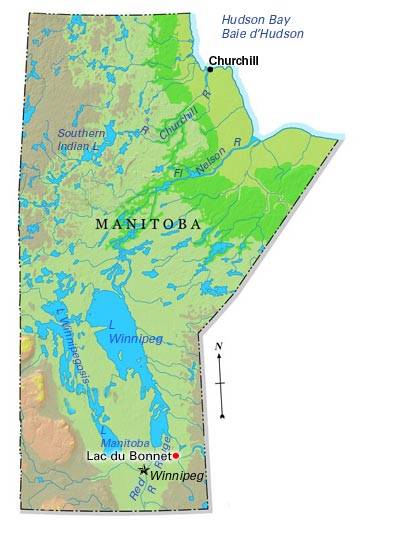Virden, Manitoba, incorporated as a town in 1904, population 3114 (2011c), 3010 (2006c). The Town of Virden is located 278 km west of Winnipeg on the Trans-Canada Highway. Evidence concerning the origin of the name is contradictory. It may derive from settlers who were relatives of Lord Mount STEPHEN, whose home in Scotland had this name, or from the German town of Verden, home of the wife of the duke of Manchester.
Large-scale agricultural settlement began in the area in the 1880s, encouraged by construction of the CPR. Virden began as a railway camp on Gopher Creek in 1882, and became a transportation, processing and service centre for surrounding farms started by settlers from Scotland, England, Ontario and Nova Scotia.
A BRITISH COMMONWEALTH AIR TRAINING PLAN flying school was located here during WWII. In 1951 the province's first commercially productive oil zone was discovered, leading to development of the Daly field west of Virden.
Virden-Roselea and North Virden-Scallion, now known jointly as the Virden Field, were discovered in 1953. Wells even appeared within the town, where the population doubled in the oil boom which followed. The Virden Field has accounted for 75% of Manitoba's cumulative oil production since the 1950s.
While it is still the largest producer, the Virden Field's relative importance has declined. In 1995 its output was 208 581 cubic metres or 32.5% of Manitoba's total oil production. Today, agricultural and retail services and a modest manufacturing sector are also part of Virden's economy.

 Share on Facebook
Share on Facebook Share on X
Share on X Share by Email
Share by Email Share on Google Classroom
Share on Google Classroom


